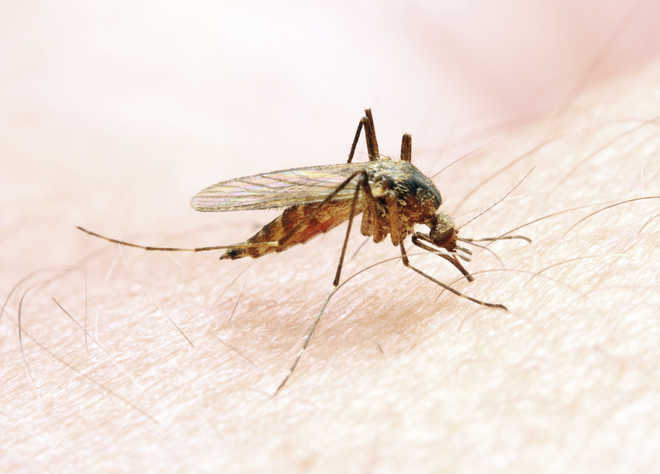
Thinkstock photo for representation
London
Researchers have, for the first time, found that the chances of a person developing malaria infection is determined by the number of parasites each individual mosquito carries, not the number of mosquito bites a person receives.
Malaria is spread when mosquitoes bite humans and release microscopic parasites, which live in the salivary glands of the mosquitoes, into the person's bloodstream.
(Follow The Tribune on Facebook; and Twitter @thetribunechd)
The parasites then travel to the liver, where they mature and multiply for 8-30 days before spreading throughout the bloodstream and causing the symptoms of malaria.
The study, led by researchers at Imperial College London, showed that RTSS -- the only registered malaria vaccine -- becomes less effective when mice or humans were bitten by mosquitoes carrying a greater number of parasites.
This explains why the vaccine is effective only around 50 per cent of the time as well as any protection rapidly drops off after three years.
It may be because the vaccine can only kill a certain proportion of the parasites and is overwhelmed when the parasite population is too large, the researchers said.
"The study has shown that the concept of relying on the number of bites alone to predict malarial burden is flawed and has probably hampered the successful use of control measures and the development of effective vaccines," said Andrew Blagborough from Imperial College London.
The findings are extremely important and should be taken into account while developing vaccines for malaria and other vector-borne diseases, Blagborough added.
The study was published in the journal PLOS Pathogens.
—IANS



























